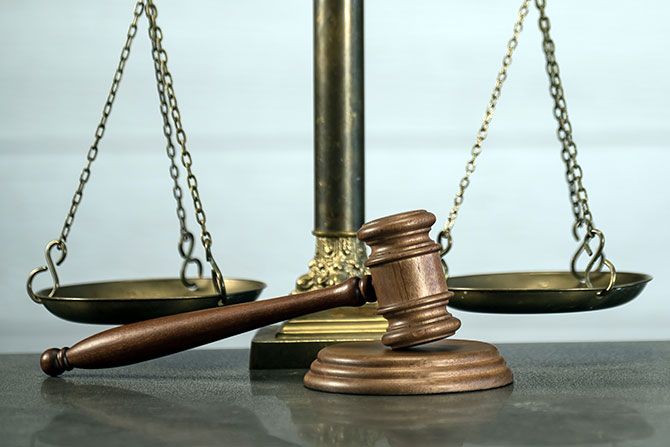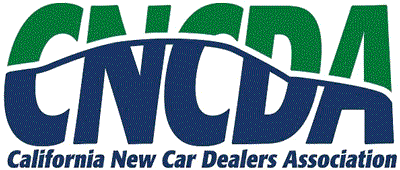Last year proved to be a robust regulatory season, and this year is shaping up to be a busy one for California Agencies as well. Below is a summary of some notable regulatory actions already proposed this year or expected to find their way through the Office of Administrative Law (OAL) in the coming months. Also, keep an eye out for our webinar offerings and monthly bulletins to stay abreast of updates in the legal and regulatory landscape affecting dealers.
Bureau of Automotive Repair
The Bureau of Automotive Repair (BAR) is the agency that enforces the Automotive Repair Act, providing consumer protection from Automotive Repair Dealers (ARDs) not following the law. For more information about BAR or to follow its rulemaking process, visit them at www.bar.ca.gov. For more information on ARD compliance issues, login to CNCDA Comply by clicking the link below.
https://www.cncda.org/publications/comply-dashboard
Citation and Remedial Training Programs for Automotive Repair Dealers
Under existing law, BAR may cite and fine ARDs in violation of the Automotive Repair Act. AB 471 (2021), authorizing BAR to create an informal citation review program for ARD licensees.
The program contemplated by the most recent proposed regulations would be in addition to the existing formal system of citations and fines and creates a remedial education program, allowing ARDs with minor violations to complete the program to avoid having the citation posted on BAR’s licensing website. Qualification for this program requires the violation to be related to documentation or recordkeeping, or another type of violation the Bureau determines to be minor in nature. The informal citation conference option begins on July 1, 2023, and is scheduled to end on July 1, 2026. AB 471 also specifies that unregistered ARDs may not enjoy the benefit of any lien for labor or materials, including the ability to charge storage fees.
The proposed regs are reasonable and likely to be beneficial to dealers by providing an avenue for avoiding a published citation where the violation is minor. There is also quite a bit of transparency required from BAR. BAR has always been a reasonable agency with a collegial approach to enforcement and has been very transparent and cooperative during the rulemaking process. Further, this regulation may provide BAR with more ability to eliminate unlicensed actors.
Automotive Repair Dealer Registration Application Requirements
Currently, the application components to become a licensed Automotive Repair Dealer (ARD) are not set forth in regulation. Rather, 16 CCR 3351 simply states the applicant must provide whatever is required by the application. The regulations put forth by BAR (if approved as is) codify the current requirements and add a few things:
- More contact information: phone number, email, and license plate number if conducting mobile repairs
- BAR is now required to accept “nationally recognized and industry-accepted educational certifications” and “any Bureau-approved educational certifications” as part of the ARD application.
- This prompted the need to define “Bureau-approved educational certifications” and create a pathway for providers of educational certifications to have their programs deemed Bureau-approved.
- The definition is very reasonable and inclusive of most automotive education programs and also includes manufacturer-provided educational material.
- To be clear, it is not requiring applicants to submit, but rather requires BAR to accept these certifications on the application.
Requires identifying information if the business has a fictitious name, is a corporation or LLC, etc.
- Adds a notification requirement if an ARD is cited for egregious behavior such as charging without performing repairs, misrepresentation, gross negligence, etc.
Overall, the regulations are very reasonable and BAR has had a robust and transparent interaction with stakeholders and the public in crafting these rules that they are mandated to promulgate under AB 471 (Low — 2021).
California Privacy Protection Agency
The California Privacy Protection Agency (CPPA) was created in 2020 by the California Privacy Rights Act (CPRA) to promulgate rules and enforce the California Consumer Privacy Act (CCPA) and the subsequent CPRA. To learn more about the CPPA or to follow their rulemaking efforts, visit them at cppa.ca.gov. Login to CNCDA Comply by clicking the link below to view our most recent CCPA compliance manual, along with other helpful manuals on various topics affecting dealerships.
https://www.cncda.org/publications/comply-dashboard
California Consumer Privacy Act Regulations
The first round of regulations put forth by the CPPA was submitted in February with an anticipated effective date of July 1, 2023. Some highlights of the regulations include:
- Changes to “Authorized Agent” registration requirements
- Eliminates the business-to-business and employee data exemption
- Enhanced disclosure requirements
- Adds “Disproportionate effort” to reasons a business can decline some requests
CNCDA and ComplyAuto put on a webinar on the changes from CCPA to CPRA, covering the evolution into the CPRA, modifications of existing laws and regulations, new laws and regulations, fines and penalties, and more. You can access that and other helpful webinars on CNCDA’s events website at www.cncda.org/events.
Cybersecurity Audits, Risk Assessments, and Automated Decision-Making
The CPPA’s next round of rulemaking is underway in its nascent stages. The CPPA has invited stakeholders and the public to comment on a list of questions regarding cybersecurity audits, risk assessments, and automated decision-making. This round could have implications for dealership programming and finance departments. CNCDA will be monitoring this next round of rulemaking and will keep dealers updated as the process continues.
Office of Environmental Health Hazard Assessment
The Office of Environmental Health Hazard Assessment (OEHHA) is adding to the list of chemicals known to the State of California to cause cancer for purposes of Proposition 65. Click the link below for a complete, updated Prop 65 chemical list on the OEHHA website.








